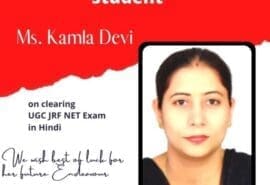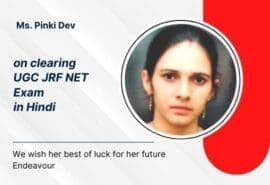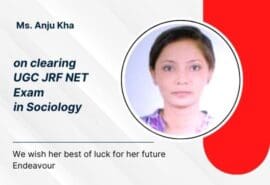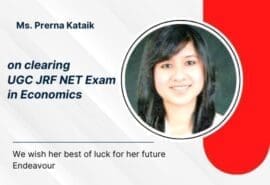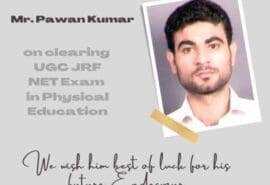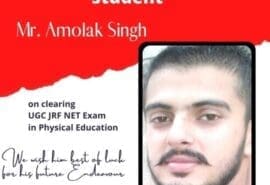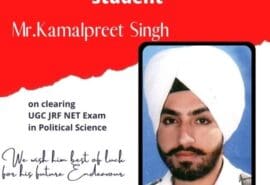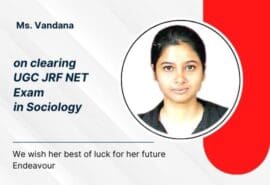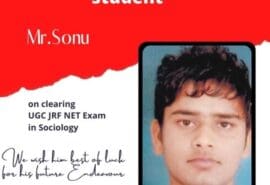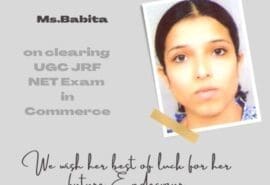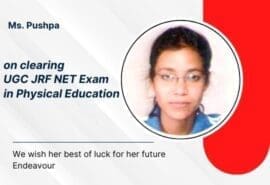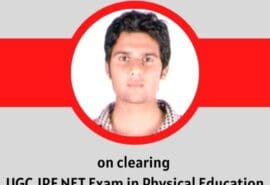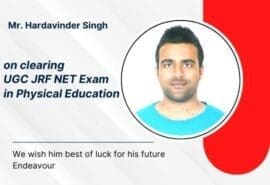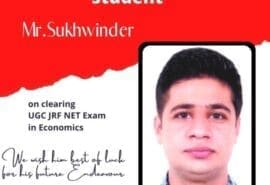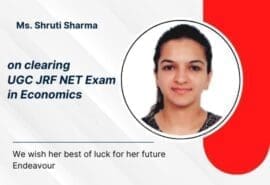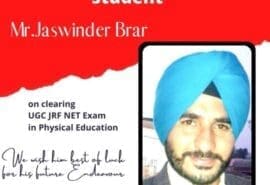
Smart Prep for the NET Sociology Assessment
Smart Prep for the NET Sociology Assessment
The National Eligibility Test (NET) for aspirants of teaching or research roles in sociology demands thorough subject knowledge and analytical rigor.
With a vast syllabus, low 2-3% clearing rates and severe competition, preparing smartly by understanding exam priorities and curating efforts accordingly is key to cracking the three-hour challenge. This article shares strategic ideas for acing the assessment.
Analyze Previous Papers
Scientifically analyze question styles, themes and frequency of past ten-year papers to discern patterns in topics assessed more consistently versus less evident. Identifying heavier weightage areas will help judiciously allocate maximum attention while ensuring minimum required coverage of less tested aspects. Analyze types of interpretative, theory application or data-based analytical questions posed for practice.
Master Core Concepts
With over 300 distinct concepts spanning culture, hierarchy, demographics and theoretical underpinnings, I thoroughly understand technical meanings and canonical interpretations around seminal notions like anomie, labeling, social solidarity, patriarchy, secularization, caste, etc. Memorize concept definitions from readings and research journals for accurate usage in applied responses. Nail this core vocabulary underpinning wider learning.
For UGC JRF NET Sociology Exam Preparation Coaching, contact us at Mantram Study Group, SCO No. 80-81, First Floor, Sector 15-D, Chandigarh (Near Gate No. 2, Panjab University Chandigarh – Contact – 9779797575/ 9463049859)
Prioritize Indian Thinkers
Questions invariably assess students' grasp of pioneering work by eminent Indian sociologists regarding caste, religion, or marginalization traditions. Hence, rigorously study the pivotal contributions of scholars like G.S. Ghurye, M.N.Srinivas, Dipankar Gupta, Andre Beteille and Neera Desai through their key texts and theories, which remain mainstays of the syllabus.
Theorize Social Issues
Sociological theories like Functionalism, Symbolic Interactionism or Feminism provide intellectual frameworks to examine behaviors, cultures and developmental challenges. Learn the original texts of Durkheim, Weber, Marx, Du Bois, etc., modern adaptations, and scholastic evaluations of their relevance.
Relate theories to contemporary issues for analytical application on caste discrimination, consumerism, globalization and inequalities.
Internalize Research Methods
With over 15% syllabus weightage on research techniques, systematically understand comparative, qualitative, ethnographic, quantitative, and analytical methods - their scientific merits, data collection tools, sampling principles, analytical procedures, etc. Identify example journal studies demonstrating empirical approaches for enhanced clarity about practical applications.
Timed Mock Tests
Attempting full-length practice papers matching actual exam timing conditions, question formats, and structural composition is invaluable. Gauge preparedness across sections, improve time allocation approaches, spot areas needing attention and reduce test anxieties around performing under pressure through consistent mocks. Review answers keys to refine writing.
Handpick References
Rather than all suggested readings, strategically identify 2-3 supplementary references that align strongly with updated syllabus focus areas and condense insights through summarized notes for efficient revision. Sociological compilations around gender, globalization or Indian caste provide concentrated insights. Customize references as per evolving paper trends.
Learn Faster Study Tactics
Assimilate heavy subject information using activation techniques like teach-backs, mnemonic devices, brain maps, quizzing partners, etc., that stimulate neural connections for accelerating retention. Interleave complex concepts rather than sequential study to deepen understanding. Apply the Pareto principle to optimize efforts towards high-frequency topics.
Balance Health & Revision
Rigorous mental exertion over months of preparation places heavy demands. Prioritize adequate sleep before midnight, nutritional meals, hydration, leisure activities and even brief exercise to maintain peak cognitive capacities for intensely revised topics. Create optimal daily schedules balancing health, revision targets and mock tests.
Stay Motivated
Beyond academic guidance, savvy coaching provides aspirants with much-needed motivation through conducive peer groups, guiding meditation practices, and sharing success stories of past students who overcame odds during preparation. Setting milestone-based rewards and visualizing career goals post-clearing exams also enhances perseverance.
Conclusion
Carefully analyzing exam priorities rather than attempting blanket coverage, selecting supplementary references strategically, learning concepts thoroughly, practicing answer writing under timed conditions and sustaining health and motivation collectively constitutes a smart NET sociology prep strategy.
This avoids wasting efforts on lower probability topics and channels energies toward highly probable questions for maximizing scores.
Thanks for visiting our website Mantram Study Group
You may also join Mantram for NORCET Coaching
Testimonials
 Their passion for teaching and extensive knowledge of the subject matter shines through in their engaging lectures and interactive class sessions. Students can grasp complex concepts and excel in their exams with their guidance. The CSIR Life Science Coaching Academy's commitment to students' success is evident in its teaching methodology.
Their passion for teaching and extensive knowledge of the subject matter shines through in their engaging lectures and interactive class sessions. Students can grasp complex concepts and excel in their exams with their guidance. The CSIR Life Science Coaching Academy's commitment to students' success is evident in its teaching methodology.


